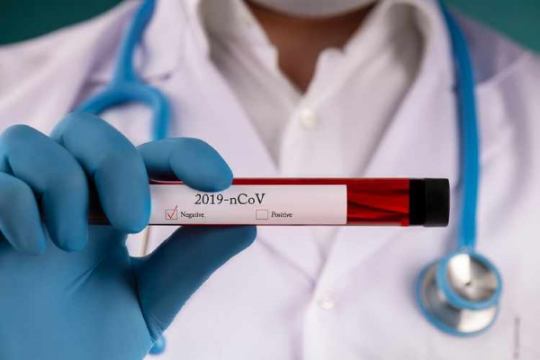Lessons From COVID-19 in Combating Chronic Illness
Ahmed Al-Jedai | 01 February 2022
Saudi Arabia has achieved significant success in combating COVID-19, having one of the most effective national responses to the virus and avoiding potentially vast loss of life. At the same time, in my role as the assistant Deputy Minister of Health for medical support, I must acknowledge that our health system could yet face a greater challenge.
On Monday, I will address delegates at the Health System Resilience Summit at Expo 2020 Dubai, where current and former health ministers from the across the Gulf, Europe, North America and Asia will discuss how health systems around the world can be made “crisis resilient.” The summit builds on the work of the Partnership for Health Systems Sustainability, set up by the World Economic Forum, the London School of Economics and AstraZeneca.
When we think of crises in healthcare, we often think in terms of another pandemic, but unfortunately, Saudi Arabia, like many countries in the region, faces another challenge — the ticking time bomb that is the growing burden of noncommunicable diseases such as cancer, diabetes, and obesity.
These diseases are the main driver of mortality in the Kingdom, accounting for 73.2 percent of deaths, a rate among the highest of all GCC countries. This heavy disease burden, taking into account our projected population growth from 33.4 million in 2018 to 39.4 million in 2030, will trigger a major increase in demand for health services.
To address this, we must apply key lessons from our handling of the COVID-19 pandemic. First, we are looking at more rapid adoption of screening programmes for noncommunicable diseases, in the same way we were able to quickly set up mass screening and vaccination for COVID-19. At the start of the pandemic, the World Health Organization called for mass screening programs to help halt viral spread. We initiated a COVID-19 mass screening program in Saudi Arabia in April 2020, targeting both symptomatic and asymptomatic cases. Launching this in the early phase of the pandemic enabled us to identify areas with the highest infection rates and stay ahead of the virus. We are looking to apply similar agility to cancer screening as, unfortunately, many patients in Saudi Arabia receive a diagnosis at an advanced stage.
Saudi Arabia has achieved significant success in combating COVID-19, but our health system could yet face a greater challenge.
Second, the COVID-19 outbreak led to health systems around the world needing to diversify and rapidly employ digital technologies to provide virtual, remote healthcare to patients. As the pandemic struck, millions of Muslims from around the world were hoping to make the journey to Makkah in Saudi Arabia to participate in the Hajj pilgrimage. We were forced to take rapid measures, pausing Umrah and allowing only limited carefully selected individuals to take part in Hajj. By 2021 we were able to permit an increase in numbers, with 60,000 fully vaccinated pilgrims. This recovery was due in large part to our development of an electronic platform and an app, which provided users with a strict schedule to follow and an indication of which areas to avoid, to prevent spread of infection.
Sehhaty, or “My Health,” is just one of many digital health technology platforms in use in Saudi Arabia for purposes beyond seeking advice on COVID-19-related issues. These apps have changed the way that health practitioners deliver services to patients, enabling them seek medical support and obtain prescriptions without having to visit a medical center. They also facilitate remote monitoring, management and delivery of non-urgent medical care, creating efficiency and cost-savings for our system.
However, alongside the implementation of all these new approaches, it is essential that we track our progress and continually ask whether our health system is truly becoming more resilient. That is why, as I will explain to delegates at the summit, we are undertaking an analysis of the Saudi health system that will take place as part of the global Partnership for Health Systems Sustainability and Resilience. The analysis uses a novel resilience framework originally developed by the London School of Economics. We have set up a task force between our Ministry of Health and the health affairs unit at the Ministry of National Guard to use the framework to run an evaluation of the resilience of our health system across five key domains – finance, governance, service delivery, workforce, and medicines and technology. The results of the analysis will be available this year, and we are confident that the measures that we have taken during the pandemic, and our rapid adoption of measures to tackle noncommunicable diseases, will mean we are on the right track.
We must all maintain focus to ensure our health systems can handle all future shocks and crises.
Prof. Ahmed Al-Jedai is the Saudi Assistant Deputy Minister of Health.
This article was originally published on Arab News .
Views in this article are author’s own and do not necessarily reflect CGS policy.
